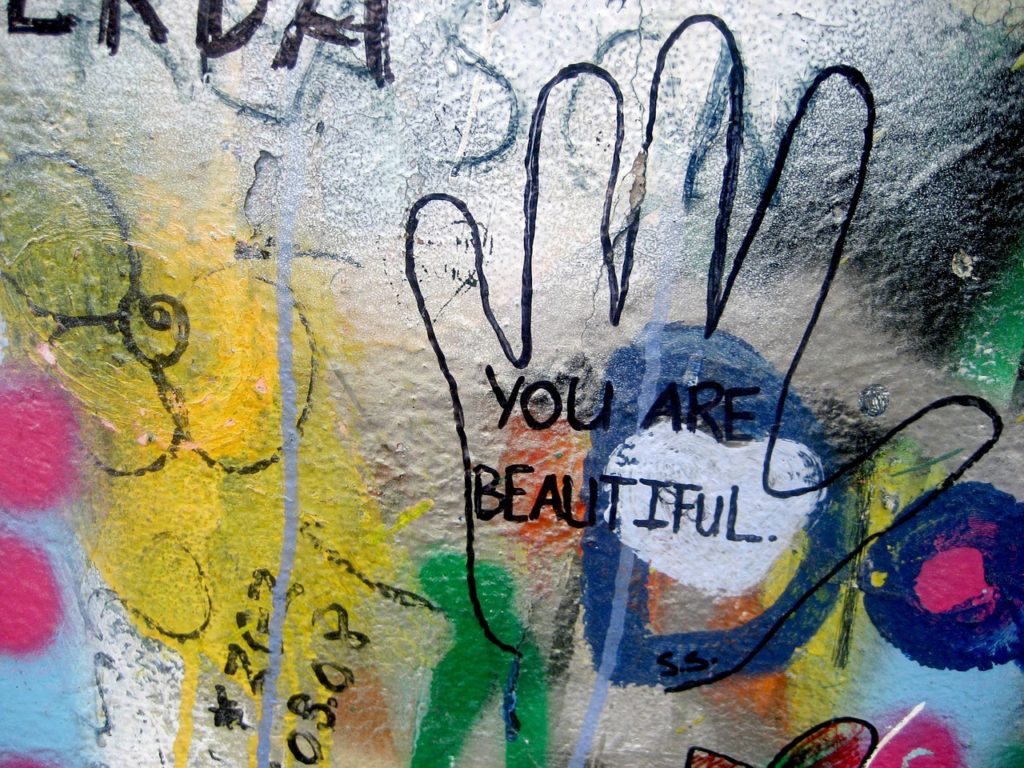Libby Allnatt, Phoenix, AZ, USA, SSH Blog Correspondent

One of the first reactions I ever received when talking about an incident of street harassment was one that many women are likely familiar with: “He was just complimenting you.”
It’s been said before, but it bears repeating: street harassment is not a compliment.
I can honestly say I have never felt even an ounce of flattery by a man trying to violate my space or hollering approval of my body from across the street. Excuse me for not swooning as a man follows me down the street and calls me a bitch.
But about the men who mean well, the ones who give you space, the ones who are really just trying to be friendly?
Is there such a thing?
This is something I’ve been struggling with lately as a feminist and anti-street harassment advocate.
The other day, a young man approached me as my sister and I were shopping on a popular local street. “I just wanted to let you know you’re very beautiful.”
He proceeded to reach out for a hand shake. I gave him one awkwardly, said thank you, then walked away.
My sister and I laughed. “Does that happen a lot?” she asked.
Surprisingly, it does. A few months ago a young man about my age approached me while I was waiting at a train stop.
“I just wanted to let you know you’re very pretty,” he said. “Have a good day.”
Pleasantly relieved (I’ve come to expect much worse when approached in public) I said thank you and walked away. I was torn: I still didn’t like being approached, but this gentleman was friendly for the most part, and he didn’t ask for anything else but a hello.
As bad as it may sound, the age factor also makes a difference. This young man looked about my age and was generally respectful, which frankly feels less predatory than a man who could be my grandpa following me around and drooling at my exposed legs. (Especially because many of my older harassers have specifically expressed arousal at my young age and appearance.)
But are these really so different?
I even laughed along once when passing a group of guys on my college campus who jokingly swooned and dramatically tried to flirt with me as I walked by. I later felt torn at how I laughed off their reactions. They weren’t disrespectful, and they were trying to be funny about the whole thing, but what had I just condoned by showing any amusement at all at their behavior?
I would like to express that I would likely be considered average in appearance, and I do not by any means intend to convey a sense of “Oh I’m just so beautiful and men are crawling at my feet. It’s so hard.” Truth be told I think these “nice” guys would approach any female. In addition, even these “compliments” never make me feel good, per se.
First and foremost, street harassment is not about making the woman feel good. If it was, the harasser wouldn’t be doing it. It’s violating, uncomfortable and often downright dangerous.
You never know when a catcall can lead to a verbal assault that can in turn lead to physical and/or sexual attack.
— Patricia Valoy (@PatriciaValoy) September 27, 2012
If a catcall has ever made you feel good about yourself, don’t feel bad. Just know that many women don’t have the same experience as you. Maybe you didn’t feel degraded or threatened, but many women do, and that’s reason enough to put a stop to it.
Isn’t that what feminism is all about? Helping women in situations very different from our own?
Believe it or not, we would like to move about in public spaces without men looking us up and down, judging, evaluating, and approving (or disapproving.)
Besides, we don’t need a self-esteem boost from harassers. Let’s get our value from our work, our kindness, our talent, our brilliance, our compassion and not from a man standing on the street corner yelling obscenities about our asses.
In addition, street harassment often involves more complex forms of layered oppression, with LGBTQ+ individuals and women of color experiencing even more aggressive forms of the phenomenon, which demonstrates how harassment is often used as a tool of prejudice.
Today’s #StreetHarassment Prevention Act equips #DC agencies to address harassment for people who face multiple layers of oppression. #endSH pic.twitter.com/zBrQ8DrO2X
— CollectiveActionDC (@SafeSpacesDC) February 21, 2017
The bottom line is, even if a man is truly just trying to be friendly, there’s still a sense of entitlement that their opinion matters, and that they have the ability to make you feel good with their approval. Although I appreciate the friendliness (and I’m often grateful when the situation doesn’t escalate and the dude leaves me be— kind of sad, huh?), the implications of complimenting women on their looks in public is just a little too in line with the patriarchy for me to be comfortable with.
The message is still the same: This is our space, and you’re in it.
So that guy who approached me and shook my hand may have stopped to pay me a compliment and then simply moved on with his life.
But he still held onto my hand for a little too long.
And I still didn’t like it.
Libby is a student at Arizona State University. Originally from Salt Lake City, Utah, she is majoring in journalism with a focus on print and she is minoring in psychology and women’s studies. You can follow her on Twitter @libbyallnattasu and Instagram @LibbyPaigeA.
